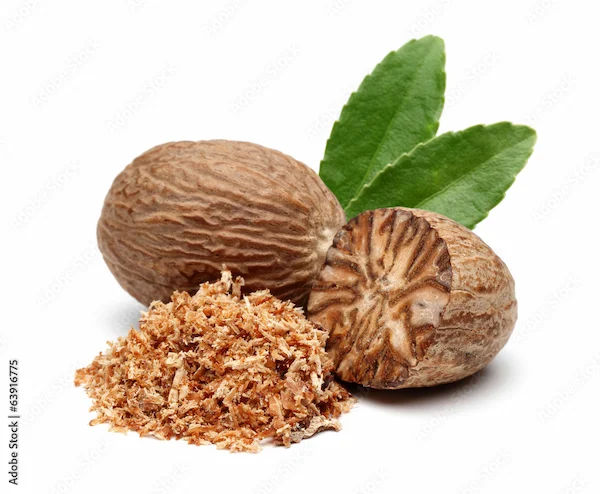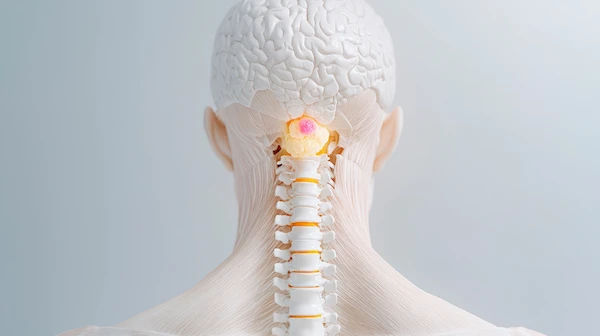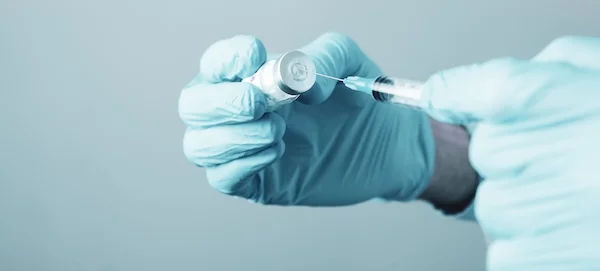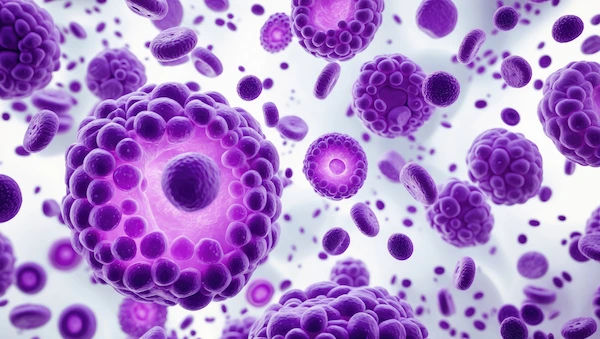The Ultimate Guide to Stem Cells Types, Treatments, and Future Potential
Discover the ultimate guide to stem cells: their types, current medical applications, ethical considerations, and future potential in regenerative medicine.


Introduction
Imagine a single cell with the extraordinary potential to heal, repair, and regenerate. This isn't science fiction; it's the reality of stem cells, the foundation of every organ and tissue in your body. Often called the body's "master cells," these remarkable biological building blocks hold the key to understanding development, disease, and the future of medicine. But what exactly are they, and why are scientists and doctors so excited about their potential? This guide will demystify the world of stem cells, breaking down the complex science into easy-to-understand concepts. We'll explore the different types of stem cells, from the powerful embryonic ones to the adult stem cells found in our bone marrow and fat. We'll delve into the proven medical therapies already saving lives, like bone marrow transplants, and look ahead to the cutting-edge research that promises to revolutionise how we treat conditions from heart disease to spinal cord injuries. Whether you're a patient considering options or simply curious about medical advancements, this comprehensive overview will provide the knowledge you need.
What Are Stem Cells? A Simple Definition
At its core, a stem cell is an unspecialised cell that has two unique and vital abilities.
The Two Defining Characteristics of All Stem Cells
1. Self-Renewal: This is the ability to divide and make copies of themselves for long periods. This process ensures a steady supply of stem cells.
2. Differentiation: This is the capacity to develop into specialised cell types with specific functions, such as a heart muscle cell that beats, a red blood cell that carries oxygen, or a neuron that transmits signals in the brain.
Think of them as a blank slate. A stem cell in the bone marrow doesn't know it's going to become a white blood cell to fight infection or a red blood cell to carry oxygen. It receives signals from the body that tell it what type of cell to turn into, a process guided by our internal genetic blueprint.
Why Are Stem Cells So Important in Medicine?
This dual capability makes them indispensable. In a developing embryo, they build every part of the human body. In adults, they act as an internal repair system, replenishing specialised cells that are lost due to wear and tear, injury, or disease. For medicine, this presents a monumental opportunity: harnessing this innate power for regeneration. The goal of stem cell therapy is to replace cells that have been damaged or destroyed. For example, in Parkinson's disease, dopamine-producing neurons die. The therapeutic hope is to differentiate stem cells into new, healthy dopamine neurons and transplant them into the patient's brain to restore function.
The Different Types of Stem Cells Explained
Not all stem cells are the same. They are categorised based on their source and their potential to differentiate, which is called "potency."
Embryonic Stem Cells (ESCs)
Source: Derived from embryos at a very early stage of development (typically 4–5 days old, at the blastocyst stage).
Potency: Pluripotent. This means they can turn into any cell type in the body (over 200 kinds), from skin and bone to neurons and heart cells. This makes them incredibly powerful for research.
Consideration: Their use is the subject of significant ethical debate because harvesting them involves the destruction of the human embryo.
Adult Stem Cells (Somatic Stem Cells)
Source: Found in small numbers in various tissues and organs of children and adults, such as bone marrow, blood, fat, skin, and the liver.
Potency: Generally multipotent. This means they are more limited and can typically only differentiate into the cell types of their tissue of origin. Their main job is maintenance and repair.
Common Types:
Haematopoietic Stem Cells
Found in bone marrow and blood, these give rise to all types of blood cells (red, white, platelets). This is the basis for bone marrow transplants.
Consult a Haematologist for Personalised Advice
Mesenchymal Stem Cells (MSCs)
Found in bone marrow, fat tissue, and umbilical cord tissue. They can become bone, cartilage, muscle, and fat cells. They are widely researched for orthopaedic applications and for their anti-inflammatory properties.
Induced Pluripotent Stem Cells (iPSCs)
This is a groundbreaking, Nobel Prize-winning discovery. Scientists can now "reprogramme" regular adult cells (like a skin cell) back into a pluripotent state, essentially creating an embryonic-like stem cell.
Advantage: They bypass the ethical concerns of ESCs and are a perfect genetic match to the donor, eliminating the risk of immune rejection. They are a powerful tool for disease modelling and personalised drug testing.
Current Medical Applications: Where Stem Cell Therapy is Used Today
While future applications are vast, several stem cell therapies are already well-established and saving lives.
Haematopoietic Stem Cell Transplantation (Bone Marrow Transplant)
This is the most common and successful form of stem cell therapy to date. It is a standard treatment for patients with blood cancers like leukaemia and lymphoma, as well as certain blood and immune disorders. The process involves replacing a patient's diseased or damaged bone marrow (and its stem cells) with healthy ones from a donor. These new cells then regenerate a healthy blood and immune system.
Orthopaedic Applications and Sports Medicine
Injections of mesenchymal stem cells, often harvested from a patient's own fat or bone marrow, are increasingly used to treat joint injuries, osteoarthritis, and tendon tears. The goal is to reduce inflammation and promote the repair of damaged bone, cartilage, and soft tissue. While promising, it's important to note that many of these applications are still being refined through clinical trials.
Dermatology and Aesthetics
Stem cell therapy for hair loss and skin rejuvenation is a growing field. Treatments often involve using a patient's own stem cells to stimulate hair follicles or promote collagen production to combat ageing. The efficacy of these cosmetic treatments can vary widely.
If your joint pain or injury is not improving with conventional treatments, it's crucial to consult an orthopaedic specialist. You can book a physical visit to a doctor with Apollo24|7 to discuss all your options, including the evidence for emerging therapies like stem cells.
The Future of Stem Cell Research: What’s on the Horizon?
The true potential of stem cells is still unfolding in research labs around the world.
Regenerative Medicine and Organogenesis
Scientists are learning how to grow complex, three-dimensional "organoids" (miniature, simplified organs) from stem cells in the lab. These can be used to study disease or, one day, to grow entire transplantable organs, solving the critical shortage of donor organs.
Disease Modelling and Drug Testing
iPSCs are revolutionary here. Researchers can take a skin cell from a patient with Alzheimer's, turn it into an iPSC, and then differentiate it into a neuron. They now have a living, human neuron with that patient's exact Alzheimer's genetics in a petri dish to study the disease's progression and test new drugs.
Important Considerations and Ethical Questions
As with any powerful technology, stem cell research comes with important discussions.
The Ethics of Stem Cell Research
The use of embryonic stem cells continues to be a profound ethical issue for many, centred on the moral status of the embryo. This has led to strict regulations in many countries. The development of iPSCs has provided a promising alternative that largely circumvents this ethical dilemma.
Risks and Challenges in Stem Cell Therapy
Beyond ethics, there are medical risks. These include immune rejection (if the cells are from a donor), the possibility that the cells could form tumours (particularly with pluripotent cells), and simply the risk that the therapy might not work as intended. A major concern is the proliferation of unregulated "stem cell clinics" offering unproven and potentially dangerous treatments. It is vital that any stem cell therapy be pursued through rigorous, approved clinical trials or established, proven treatments.
Conclusion
Stem cells represent one of the most fascinating and transformative frontiers in modern medicine. From their fundamental role in human development to their current life-saving application in bone marrow transplants, their impact is undeniable. The science is rapidly evolving, bringing us closer to a future where regenerating a damaged heart, repairing a severed spinal cord, or growing a new kidney could become medical reality. However, this exciting potential is balanced by real ethical considerations and medical risks that must be navigated with care and rigorous science. As research continues, the promise of stem cells is to move medicine from simply treating symptoms to truly curing diseases by harnessing the body's own powerful capacity for healing. For anyone following health advancements, understanding what stem cells are is the first step towards appreciating the next generation of medical breakthroughs.
Consult a Haematologist for Personalised Advice
Consult a Haematologist for Personalised Advice
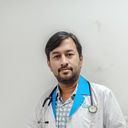
Dr Abilash Jain
General Physician/ Internal Medicine Specialist
12 Years • MBBS,DNB(FM),MNAMS,FIAMS,CCGMG(GERIATRICS),DGM (GERIATRICS),PGCD(DIABETES,BOSTON UNIVERSITY),FID(DIABETICS UK)CCEPC(PALLIATIVE CARE),CCCC(CRITICAL CARE)
Visakhapatnam
Apollo Clinic Vizag, Visakhapatnam

Dr. E Prabhakar Sastry
General Physician/ Internal Medicine Specialist
40 Years • MD(Internal Medicine)
Manikonda Jagir
Apollo Clinic, Manikonda, Manikonda Jagir
(150+ Patients)
Dr. Velu Nair
Haematologist
36 Years • MBBS, MD (Med.), FRCP, FACP, FAMS, FICP, FIACM, FUICC, FISHTM
Ahmedabad
Apollo Hospitals Gandhinagar, Ahmedabad
(25+ Patients)

Dr. Ramalinga Reddy
General Physician
5 Years • MBBS MD General medicine
Bengaluru
PRESTIGE SHANTHINIKETAN - SOCIETY CLINIC, Bengaluru
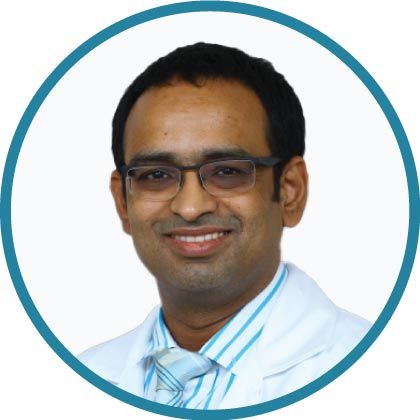
Dr. Prabu P
Haematologist
29 Years • MBBS, MD(Gen.Med.)(JIPMER) , MRCP, Dip RCPath, FRCPath, CCT(U.K), Haemato - Oncology.
Chennai
Apollo Hospitals Greams Road, Chennai
(550+ Patients)
Consult a Haematologist for Personalised Advice

Dr Abilash Jain
General Physician/ Internal Medicine Specialist
12 Years • MBBS,DNB(FM),MNAMS,FIAMS,CCGMG(GERIATRICS),DGM (GERIATRICS),PGCD(DIABETES,BOSTON UNIVERSITY),FID(DIABETICS UK)CCEPC(PALLIATIVE CARE),CCCC(CRITICAL CARE)
Visakhapatnam
Apollo Clinic Vizag, Visakhapatnam

Dr. E Prabhakar Sastry
General Physician/ Internal Medicine Specialist
40 Years • MD(Internal Medicine)
Manikonda Jagir
Apollo Clinic, Manikonda, Manikonda Jagir
(150+ Patients)
Dr. Velu Nair
Haematologist
36 Years • MBBS, MD (Med.), FRCP, FACP, FAMS, FICP, FIACM, FUICC, FISHTM
Ahmedabad
Apollo Hospitals Gandhinagar, Ahmedabad
(25+ Patients)

Dr. Ramalinga Reddy
General Physician
5 Years • MBBS MD General medicine
Bengaluru
PRESTIGE SHANTHINIKETAN - SOCIETY CLINIC, Bengaluru

Dr. Prabu P
Haematologist
29 Years • MBBS, MD(Gen.Med.)(JIPMER) , MRCP, Dip RCPath, FRCPath, CCT(U.K), Haemato - Oncology.
Chennai
Apollo Hospitals Greams Road, Chennai
(550+ Patients)
More articles from General Medical Consultation
Frequently Asked Questions
1. What is the difference between embryonic and adult stem cells?
Embryonic stem cells are pluripotent, meaning they can become any cell type in the body, but their use is ethically debated. Adult stem cells are multipotent, meaning they are more limited to becoming cell types within their tissue of origin (e.g., blood stem cells make blood cells), and they pose fewer ethical concerns.
2. Are stem cell injections FDA-approved?
The FDA has approved only a limited number of stem cell products, primarily those related to blood-forming (haematopoietic) stem cells for specific diseases. Many injections offered for joint pain or cosmetic purposes are not FDA-approved and are considered experimental. It's crucial to verify the status of any treatment.
3. What are the risks of unproven stem cell therapies?
Risks can include infection at the injection site, immune rejection, improper cell growth, and the development of tumours. Treatments performed outside of regulated clinical settings can be dangerous and ineffective.
4. Is cord blood banking worth it?
Cord blood is a rich source of haematopoietic stem cells. Banking it privately is a personal insurance policy, potentially useful if your child develops a disease treatable by their own cells. Public donation helps others in need. The decision depends on family medical history and cost.
5. Can stem cells cure diabetes?
Not yet. While research is very active—using stem cells to create insulin-producing beta cells—it is still in the experimental and clinical trial phase. It is a promising avenue for a future cure, but not a current treatment.
